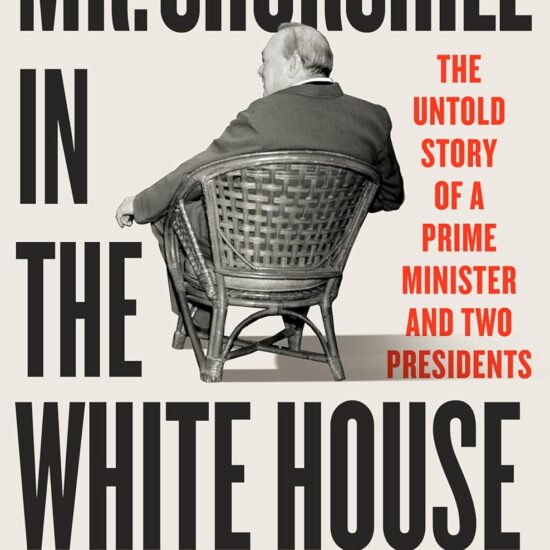British television has experienced a renaissance in recent years, transforming from a niche interest accessible only through PBS reruns to a mainstream entertainment force available across multiple streaming platforms. This evolution reflects both the exceptional quality of British programming and the changing landscape of how Americans consume international content.
Early Encounters: Finding Britain on American Airwaves
For many Americans, their first exposure to British television came through local PBS stations, often during weekend programming blocks that featured older shows alongside classic films. Jackie’s introduction was typical of this experience: “My local PBS station used to air old black and white movies. But before they would air the movies, they would show two British shows. They would show As Time Goes By with Judi Dench… And then… Keeping Up Appearances with Mrs. Bouquet.”
These early encounters weren’t driven by Anglophilia but by simple entertainment value. As Jackie notes, “I wasn’t really an anglophile not at all so you just liked it because you liked it it wasn’t because it was british exactly.” The shows worked on their own merits, with Jackie finding Judi Dench’s character “the epitome of class. Just very distinguished and elegant and ladylike” and embracing Hyacinth Bucket as “my spirit animal.”
Jonathan’s path began differently, with late-night discoveries of Mr. Bean on PBS. “There was this weird british guy who didn’t say anything… it was slightly off it was slightly but in a charming way and it was hilarious.” The visual comedy transcended language barriers, making Mr. Bean accessible to young viewers who might not have understood more dialogue-heavy programming.
This accessibility explains Mr. Bean’s global success. As Jonathan observes, “They were able to license the show because there was no language barrier. So everybody knows who Mr. Bean is in the farthest quarters of the world.” The character became an inadvertent ambassador for British culture, requiring no cultural context to appreciate.
The Evolution of Taste: From Comedy to Drama
As viewing habits matured, both hosts developed preferences that illustrate the breadth of British television’s appeal. Jonathan’s progression from Mr. Bean to Doctor Who demonstrates how British programming can grow with its audience, offering different entry points for various age groups and interests.
“I remember watching… there were people running around these cheap wooden sets and I was like 11 so like girls were in miniskirts and this was exciting to me and there was a crazy guy with a long scarf and weird hair,” Jonathan recalls of his first Doctor Who exposure. While admitting he “cannot handle classic Doctor Who,” he became deeply invested in the 2005 revival, illustrating how British shows can successfully reinvent themselves for new generations.
Top-Tier British Comedy: The Gold Standard
British comedy represents perhaps the strongest argument for the medium’s superiority over American counterparts. As Jackie boldly states, “I would put british comedy against american comedy any day.” This confidence stems from the distinctive characteristics that define British humor: intelligence, darkness, and willingness to assume audience knowledge.
Political Satire at Its Finest
Jonathan’s top comedy choice, Yes Minister and Yes Prime Minister, exemplifies British comedy’s sophistication. “It gives you such an insight into the politics in Britain and how the civil service works… it’s real dry sarcastic and droll comedy.” The show’s enduring relevance stems from its understanding that political dysfunction transcends party lines and eras.
For contemporary political satire, The Thick of It updates this formula with modern sensibilities. “It’s extremely like if you are very sensitive to swearing this is not for you filled with swearing it literally every other word but it’s so good,” Jonathan warns. The show’s creator armored it with Peter Capaldi’s Malcolm Tucker, “one of the greatest comedic villains ever created,” whose verbal virtuosity coined terms like “omnishambles”—”a situation that’s a shambles but from multiple directions.”
Character-Driven Excellence
British comedy excels at creating deeply flawed but compelling characters. Peep Show represents this tradition’s pinnacle, with Jackie describing it as “the funniest show i’ve ever seen.” The show’s success lies in its unflinching examination of male friendship and failure, with characters who remain sympathetic despite their obvious shortcomings.
Similarly, Keeping Up Appearances works because Hyacinth Bucket’s social climbing feels genuine rather than cartoonish. Jackie appreciates “the juxtaposition of Hyacinth trying to… better herself” and finds humor in how “although she came out of that situation… they really almost intentionally make her feel uncomfortable.”
Technical Innovation
The IT Crowd demonstrates British comedy’s ability to find humor in contemporary workplace dynamics while maintaining accessibility for non-technical audiences. Jackie’s hospital experience illustrates the show’s therapeutic power: “I was laid up in the hospital… laughing hysterically at the IT crowd thinking this is such a bad idea it hurts so bad to laugh but it was so funny.”
British Drama: Unparalleled Storytelling
British television drama operates on a different scale and timeline than American programming, allowing for more focused storytelling and character development. The miniseries format, typically running 3-6 episodes, permits complete narrative arcs without the padding required for American network television’s longer seasons.
Period Drama Supremacy
“Nobody does period dramas better that or period drama miniseries better than the bbc,” Jackie asserts, highlighting a key British television strength. American networks largely abandoned historical programming due to cost considerations, leaving British producers to dominate this genre.
The success of shows like Downton Abbey in American markets demonstrates the appetite for quality period programming. These productions benefit from Britain’s preserved historical locations, extensive costume departments, and actors trained in classical theater traditions.
Contemporary Social Realism
Modern British dramas like Broadchurch exemplify the medium’s ability to tackle serious subjects with sensitivity and intelligence. Jackie recalls the show becoming “event tv” both in Britain and America, noting how “the first season is all about the murder of a little boy danny latimer… in this seaside dorset place village where we’ve actually been.”
The show’s success stemmed from its authentic portrayal of grief and community trauma, enhanced by locations that viewers could actually visit. “Between seasons we actually went… and we saw the those beautiful orange cliffs… the name of the village for real is west bay west bay part of report.”
Character-Driven Narratives
British drama’s strength lies in character development over plot mechanics. Inspector Morse succeeds not just as a detective series but as an exploration of Oxford academic life, with the city itself becoming “almost a character in the show.” This integration of setting and character creates viewing experiences that feel authentic rather than manufactured.
The Streaming Revolution: Access Transformed
The landscape for watching British television has transformed dramatically over the past decade. “We’re in the golden age of watching British TV and when we started Angletopia it was not it was hard you had to work to find british tv yeah and now it’s everywhere,” Jonathan observes.
Specialized Services Lead the Way
Acorn TV pioneered British television streaming in America, leveraging their DVD catalog to create the first dedicated service. “They would sell the DVDs. Like if you bought Inspector Morris or Jeeves and Wooster or any of the classic British comics and DVD, you were buying Acorn’s DVDs,” Jonathan explains. At $4.99 monthly, Acorn offers exceptional value for classic British programming.
BritBox represents the next evolution, providing a partnership between BBC and ITV that brings current programming to American audiences. “They have a great feature called the now feature where they’re bringing over stuff every day that the same day it airs in the uk,” addressing the longtime frustration of delayed international releases.
Mainstream Platforms Join In
Netflix and Amazon Prime have become major players in British television distribution, often outbidding traditional broadcasters for exclusive content. Netflix’s acquisition of The Bodyguard and The Great British Baking Show demonstrates how streaming platforms now compete directly with established networks for premium content.
This competition benefits viewers but fragments the market. “There’s so many streaming services now it’s as much as having cable it’s ridiculous,” Jackie notes. The solution for many viewers involves strategic subscription management, maintaining services only while actively watching their content.
Live Television Solutions
For those requiring live British television access, services like UK TV Anywhere provide real-time streaming of British channels. “What they do is you get a box for the top of your tv and then it place shifts… it makes it look like you’re watching in the uk,” Jonathan explains. While expensive at $30-40 monthly, such services prove invaluable for news events and live programming.
Documentary Excellence: The Hidden Treasure
British factual programming represents perhaps the most underappreciated aspect of British television excellence. “British television, I would say that probably 70% of our total television viewing are British documentaries… Nobody does a documentary like British,” Jackie emphasizes.
This superiority stems from public service broadcasting requirements that mandate educational content. Unlike American cable networks that chase ratings through sensationalism, British broadcasters must fulfill educational mandates, resulting in substantive documentary programming that informs rather than merely entertains.
“They’re factually accurate. They are full of information,” Jonathan notes, contrasting this with American documentary programming that’s “very hype driven and like they have to it’s driven by commercial market demand so the quality is not there.”
The Future of British Television in America
The proliferation of streaming services has democratized access to British content while creating new challenges. Viewers now have unprecedented choice but must navigate multiple subscriptions and changing catalogs. The recommendation remains pragmatic: “My stance is that every Anglophile should have Acorn and Britbox together. Because together it’s still cheaper than Netflix.”
For newcomers to British television, the advice is simple: start with what interests you most, whether comedy or drama, classic or contemporary. The quality remains consistently high across genres and eras, offering something for every viewer preference.
The golden age of British television accessibility shows no signs of slowing. As production costs decrease and distribution becomes more democratized, the barrier between British and American television continues to erode. For viewers willing to explore beyond familiar American programming, British television offers storytelling sophistication, character development, and production values that often exceed their domestic counterparts.
Whether discovered through late-night PBS broadcasts or modern streaming services, British television continues to reward viewers who seek intelligence, humor, and humanity in their entertainment choices. In an era of content abundance, British programming stands out not for its volume but for its consistent quality and distinctive voice.
Free Podcast Newsletter
Subscribe to our special podcast newsletter below and never miss the latest episode of the Anglotopia Podcast.




